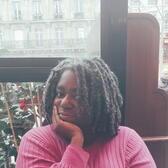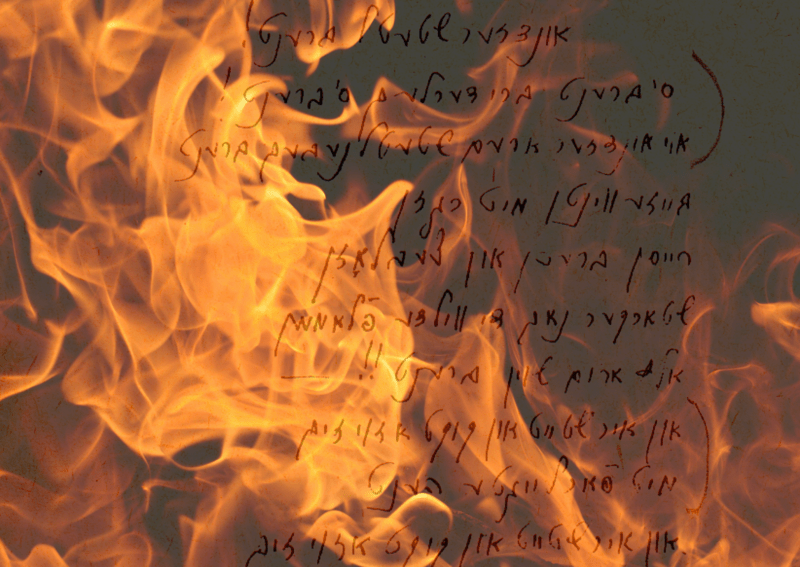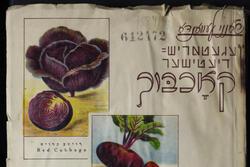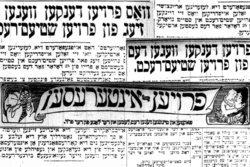"Undzer Shtetl Brent": Our Town Is Burning
The online photos of the wildfires in Colorado and California don't look real; the sky turned the color of marmalade due to smoke, flame, and ash. In a year of pandemic and turbulent politics, the world has caught on fire. The Earth is burning, and everything is not okay.
During this time of fire and fury, I can’t help but think of an old Yiddish song that captures the current mood: “Undzer Shtetl Brent,” written by Mordechai Gebirtig in response to the 1936 pogrom of Przytyk. The song, a lamentation of the town’s apathy at the violence against its Jewish population, is heart-wrenching in its vulnerability. I can just about hear the scratchy version of the song my great-grandmother played on her record player in her Coney Island apartment. The lyrics, filled with the imagery of fire and turmoil, give me goosebumps every time I hear them.
It’s burning! Brothers, it’s burning!
Recently, I hopped over to YouTube to watch Freidele Lispschitz’s version; the aching mix of beauty and burden could have been written yesterday morning. But there was also an edge of steel in Lispchitz’s gossamer voice. I’ve always thought even the most desperate pleas carry glimmers of hope. I want to believe that, anyway. The song takes that hope and mourns its loss.
I first heard the song during a trip to visit my great-grandmother, an aloof, aged woman. In her small Coney Island apartment, she instructed the maid who ironically shared my name—Erica—to put some music on. Erica walked over to the ancient record player and asked what my great-grandma wanted to hear. “Something melancholy,” she responded. After a few sputters, the saddest song I’ve ever heard began to play. I couldn’t understand the words, but I knew one thing for certain: The words meant trouble. Big trouble. I asked her what the song was about. “Fire,” my great-grandmother said. I allowed the music to fill my bones.. Back home in Indiana, I read all I could about the song and the 1936 Przytyk pogrom. The massacre made me sad, but I wasn’t afraid. Back then, fire didn’t scare me.
With folded arms. You stand and look while our town burns.
Shakespeare famously wrote, “Fire that's closest kept burns most of all.” How true that is. In 2020, with literal fire all around us, we know what it means to burn. We can relate to Gebertig, bemoaning his neighbors’ apathy. Chunks of Greenland’s ice caps are breaking away. Plastics in our oceans will soon outweigh all the fish, everywhere. President Trump won’t promise he’ll accept the results of the 2020 election. The death toll from COVID-19 is worse than we thought. The Proud Boys continue their disgusting tirade against Jews and people of color. Rapper Megan Thee Stallion’s (now ex) boyfriend allegedly shot her in the foot, yet some wonder out loud what she might have done to cause the shooting. And just before Rosh Hashanah, Ruth Bader Ginsburg died.
The tongues of fire have already swallowed the entire town.
I used to binge watch apocalypse movies on rainy Sunday afternoons. As in crumbling buildings, major earthquakes, ships lost at sea. Disaster film marathons soon made way for true crime flicks, and I studied every burning detail: the crime, the victim, the motive, how the perpetrator got caught. I used to lose myself in old episodes of Forensic Files, confident in the knowledge that, at least for the families on the show, justice had been served. “Bad things happen,” I thought. “But they’re often made right.”
After George Floyd’s murder, I couldn’t watch true crime in the same way. Disaster awaits on every channel, and I can’t watch fires now without wanting to put them out. Now, when I watch, I feel a connection to Gebirtig's lyrics. As in the song, I cry. I cry for the victims. I cry for the apathy. I cry because I don’t want to bear witness to this alone.
The world is burning!
Will anyone do anything?
And then I hang my head in embarrassment, because not too long ago, I was one of those people flipping channels.
Furious winds blow, breaking, burning, and scattering. And you stand around with folded arms.
These nearly 90-year-old lyrics express the same disbelief I feel now: Why is no one in power doing anything? Anything is better than nothing. I’ve learned that strategizing, analyzing, and planning allows us to keep action at arm’s length. We can’t be bystanders any longer.
Let’s pause our habit of collecting disasters and “take up the tools” at our disposal to pressure those in power to act with moral and political courage to put out our figurative and literal fires: police brutality, our broken political system, climate change.
Take up the tools to put out the fire, Put out the fire with your own blood.
Don't just stand there, brothers, with your arms folded.
Don't just stand there, brothers, put out the fire, because our town is burning.







